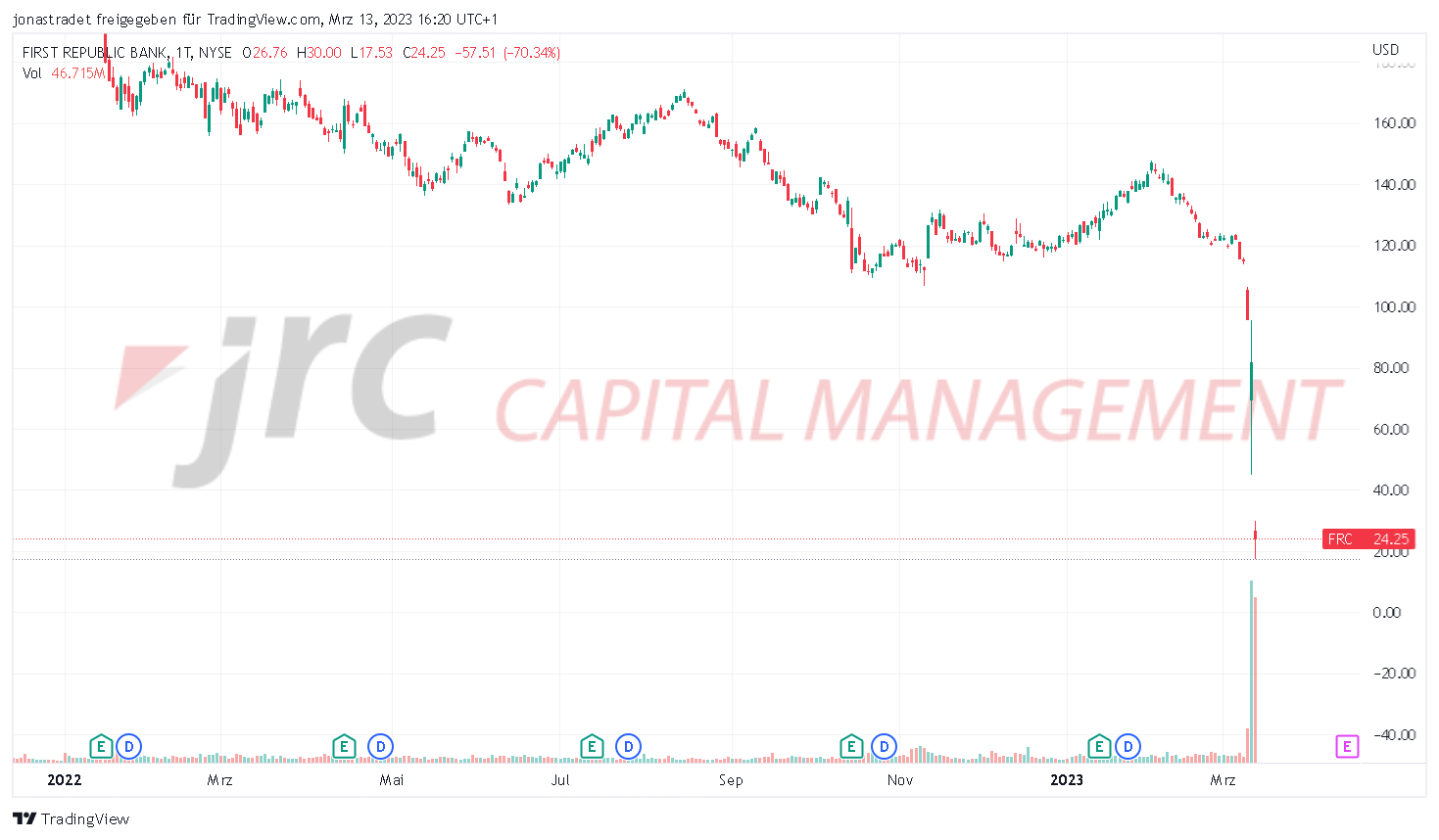Many major bank stocks are posting losses today, Monday, which are based on fears about the stability of the financial system following the collapse of Silicon Valley Bank. With $212 billion in assets, Silicon Valley Bank was the second largest bank to fail in U.S. history. Following the collapse, analysts at Goldman Sachs commented that further increases in borrowing costs by the Federal Reserve are unlikely through decisions at the next meeting of policymakers next week.
Shares of European banks such as Banco Santander, Commerzbank as well as UniCredit and also Credit Suisse all fell by more than 7% each on today’s trading day. This also brought previous upward movements of individual stocks to an abrupt end, and a new low was reached at Credit Suisse.
U.S. bank stocks were also down in pre-market trading, despite the quick response from regulators to the SVB failure. In addition, over the weekend, the U.S. Treasury, Federal Reserve and Federal Deposit Insurance Corporation put together a bailout package that essentially protects all SVB depositors, including those with assets above the $250,000 government-guaranteed limit.
The shares of First Republic Bank were particularly affected by this crisis. Before the stock market opened, the share price plummeted by over 70% and continues to fall into the bottomless pit. Long lines of desperate customers formed outside branches of the bank in Los Angeles. The bank, which unlike SVB is active in asset management and therefore specializes more in private clients, is being overrun by investors as well as clients despite assurances of sufficient liquidity.
Shares of other U.S. banks such as PacWest Bancorp and Western Alliance Bancorporation also slumped by double digits. Those of major banks such as JPMorgan Chase & Co, Citigroup Inc, Wells Fargo & Company and Bank of America also reacted sharply to the events on Friday and in some cases today.
Major indexes such as the S&P 500 fell about 2% on Friday, while the VIX volatility index has risen over 60% at times since Thursday. The Dax has fallen by more than 3% since this morning and is thus reacting comparatively belatedly to the events, while American indices are in some cases already recovering.

